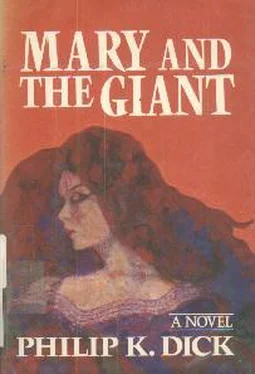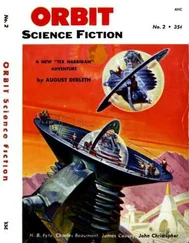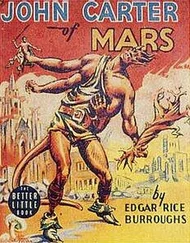Philip Dick - Mary And The Giant
Здесь есть возможность читать онлайн «Philip Dick - Mary And The Giant» весь текст электронной книги совершенно бесплатно (целиком полную версию без сокращений). В некоторых случаях можно слушать аудио, скачать через торрент в формате fb2 и присутствует краткое содержание. Жанр: Фантастика и фэнтези, на английском языке. Описание произведения, (предисловие) а так же отзывы посетителей доступны на портале библиотеки ЛибКат.
- Название:Mary And The Giant
- Автор:
- Жанр:
- Год:неизвестен
- ISBN:нет данных
- Рейтинг книги:4 / 5. Голосов: 1
-
Избранное:Добавить в избранное
- Отзывы:
-
Ваша оценка:
- 80
- 1
- 2
- 3
- 4
- 5
Mary And The Giant: краткое содержание, описание и аннотация
Предлагаем к чтению аннотацию, описание, краткое содержание или предисловие (зависит от того, что написал сам автор книги «Mary And The Giant»). Если вы не нашли необходимую информацию о книге — напишите в комментариях, мы постараемся отыскать её.
Mary And The Giant — читать онлайн бесплатно полную книгу (весь текст) целиком
Ниже представлен текст книги, разбитый по страницам. Система сохранения места последней прочитанной страницы, позволяет с удобством читать онлайн бесплатно книгу «Mary And The Giant», без необходимости каждый раз заново искать на чём Вы остановились. Поставьте закладку, и сможете в любой момент перейти на страницу, на которой закончили чтение.
Интервал:
Закладка:
"He was using his job to get girls?"
"Joe Schilling," Beth said, "is a very kindly, very thoughtful man. I like him. But I'm realistic. He has a weakness: he wants his women.
Thoughtfully, Mary Anne said: "So you went to bed with him to get your songs published."
Beth flushed. "I-suppose you could put it that way. But I-"
"Danny was a photographer, wasn't he? I remember that night ... you were jumping around naked and he was snapping pictures of you. I never worked it out; it didn't make sense. You used to pose for him, didn't you?"
"I was a professional model," Beth said, her cheeks blazing.
"I explained it to you; I was an artist."
Suddenly Mary Anne said: "It serves Tweany right."
"What do you mean?"
"I just realized what you are." Matter-of-factly, she said, "You're a whore."
Beth stood up. Her face was pale, and little lines, like cracks, spread between her eyes and radiated from her mouth. "And what do you suppose you are? Going to bed with him to keep your job-isn't that being a whore?"
"No," she said. "That's not what happened." It had not been that at all.
"And now you've suddenly become fastidious," Beth said rapidly. "Why? Because he's older than you? Be realistic-you're being kept in grand style, continental style. You have a lover who knows how to do it right. It sounds ideal; you're lucky."
Deep in thought, Mary Anne scarcely heard her. "Good God, and you like all that junk-all those 'White Christmas' tunes. What a joke. What a joke on Tweany."
"What is it?" Beth said. "How about letting me in on it? I think I deserve to be let in on it."
"Jesus," Mary Anne said. "It's true; it's really true. 'Where We Sat Down.' 'Sleigh Ride at Christmas.' My God, you're a sentimental whore."
"I see," Beth said. "Well, perhaps from your standpoint, from a cynical adolescent's standpoint-" She ceased, as the door opened and the great brooding figure of Carleton B. Tweany appeared. He carried three cans of Golden Glow beer and a can opener. "So soon?" she said briskly.
"They're warm," Tweany muttered.
"I'm feeling a little ill," Beth said, picking up her purse and moving toward the door. "Nothing serious, just a sick headache. Come along, Carleton. Please take me home."
"But we-" he began.
Beth opened the door and went out into the hall. Without looking back, she said:
"This is certainly the dirtiest building I have ever been in." Then she was gone, and, after a moment of hesitation, Tweany put down the beer cans and followed after her. The door closed, and Mary Anne was alone.
She looked around for her coat. She waited until she was sure Beth and Tweany had gone, and then she dropped the door key into her purse, slammed the door, and started down the hall.
On the front porch sat two obese colored women; they were reading movie magazines and drinking wine. Mary Anne edged past them, descended the steps to the sidewalk, and joined the midmorning crowd.
Music flowed around her, the outpourings of a symphony orchestra. She halted in the entrance, and then she walked two slow steps, studying her feet and seeing, at the same time, the pattern of the floor. She saw the suddenness of the counter, and it surprised her; she opened her mouth in an exclamation of bewilderment. Had she come that far into the store? Lifting her head, then, she saw Joseph Schilling stationed behind the counter. He was discussing records with a young man who seemed to be a student. At the front of the store, Max Figuera was sweeping the floor with a push broom, and she had walked past him.
"Hello," she said.
"Well," Max said, eyeing her grumpily. "Look who showed up.
"I'm sorry," she said.
Turning, Max said across the store to Schilling: "Look who decided to drop in for a few minutes and say hello." Schilling glanced instantly up. He put down the record he was holding and said: "I was beginning to worry."
"I'm late," she said. "I'm sorry."
"Not too late, though." He returned to his customer.
Removing her coat, she carried it carefully downstairs. When she returned, the young man had left, and Joseph Schilling was alone at the counter. Max was outside sweeping off the sidewalk.
"I'm glad to see you," Schilling said. He was sorting records, a new Victor shipment. "Are you back for good?"
"Naturally," she answered, going behind the counter. "I'm sorry you had to call Max to come down."
"No harm done."
"You haven't had your morning coffee, have you?"
"No." His face was lined and drawn; he seemed especially ponderous today. When he bent down to rummage in a carton, he lowered himself with care.
"Are you stiff?" she asked.
"Like a steel plank."
"My fault, again," she said. "I'll check the shipment; you go back and get your coffee."
Schilling said: "I was getting the idea you weren't going to show up at all."
"Didn't I tell you I'd be in?"
"You did." He concentrated on the records. "But I wasn't positive."
"Go drink your coffee," she said. Suddenly she said: "Why is it up to me?"
He stared at her with emotion; his eyes were intense and he cleared his throat to speak.
"Go drink your coffee," she repeated, wanting him to stop confronting her. He had forced her to leave; or, at least, he had not made it possible for her to stay. She felt frightened, and now she went away from him toward the front of the store. A customer had entered and was examining a display rack.
Behind her, Joseph Schilling changed his mind and did not speak. He moved in the direction of his office. She could hear him going. So she didn't have to tell him now; she could tell him later. Or perhaps not at all.
"Yes, ma'am," she said, turning quickly to the customer. "What can I do for you?"
20
That evening after work Joseph Schilling took her to dinner at La Poblana. It was the restaurant to which they had gone that first day. It had become their special spot.
Candles spotted the gloom as they followed the waiter to their particular table. The tables were low and covered by red-checkered tablecloths. The walls-Spanish in style-were adobe; the ceiling was low, and at one end of the room was a rococo railing overgrown with elderly ivy. Beyond the railing three musicians in Spanish costume were playing dinner music.
The waiter seated Mary Anne, laid the menu open before Schilling, and departed. A low haze of cigarette and candle smoke hung over the room; the murmur of voices mixed with it, smudging out the orchestra.
"It's peaceful here," Mary Anne said.
Joseph Schilling listened to her voice, and now, as he held the menu, he looked across the table at her and tried to be sure what she was feeling. "Yes," he agreed, because the restaurant was peaceful. People came here to eat and relax and talk with one another; the light was dim and there was a low quietude, as if everything, the people, the tables, were melting and flickering with the candles, flowing together into passivity. He rested. He felt the cessation of pressure, and he joined the people around him.
But the girl was not relaxed; she said she was peaceful, but she sat like a little ivory rod, her hands on the table before her: white hands, folded, cold with the light of the candle. She was not calm; she was a hard, chipped, highly polished device that seemed to have no particular feelings; she was withdrawn, as if she had shut off everything but her wariness. She heard everything, watched him without even looking at him; but that was all.
"Want me to order?" he said. If he meant to help her, he would have to proceed sentence by sentence. He could take no risks, and he could not let himself make a mistake. He required of himself a great deal.
"Please," Mary Anne said. "You know what's good." Her voice was hollow.
Читать дальшеИнтервал:
Закладка:
Похожие книги на «Mary And The Giant»
Представляем Вашему вниманию похожие книги на «Mary And The Giant» списком для выбора. Мы отобрали схожую по названию и смыслу литературу в надежде предоставить читателям больше вариантов отыскать новые, интересные, ещё непрочитанные произведения.
Обсуждение, отзывы о книге «Mary And The Giant» и просто собственные мнения читателей. Оставьте ваши комментарии, напишите, что Вы думаете о произведении, его смысле или главных героях. Укажите что конкретно понравилось, а что нет, и почему Вы так считаете.










